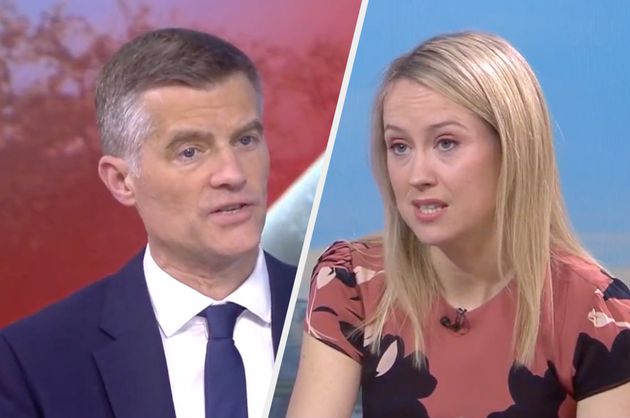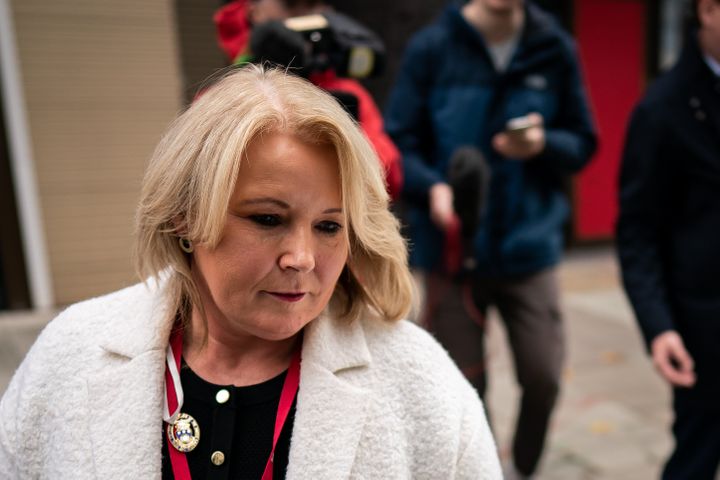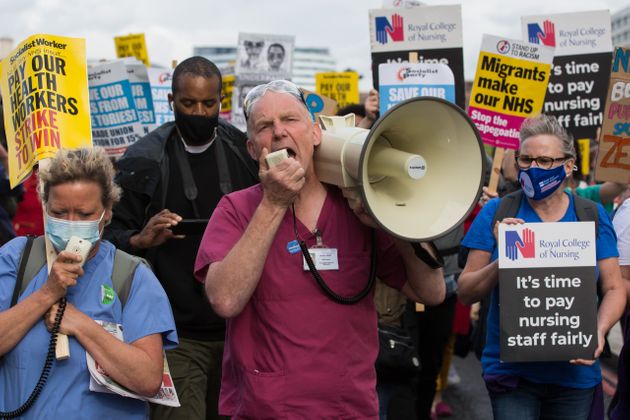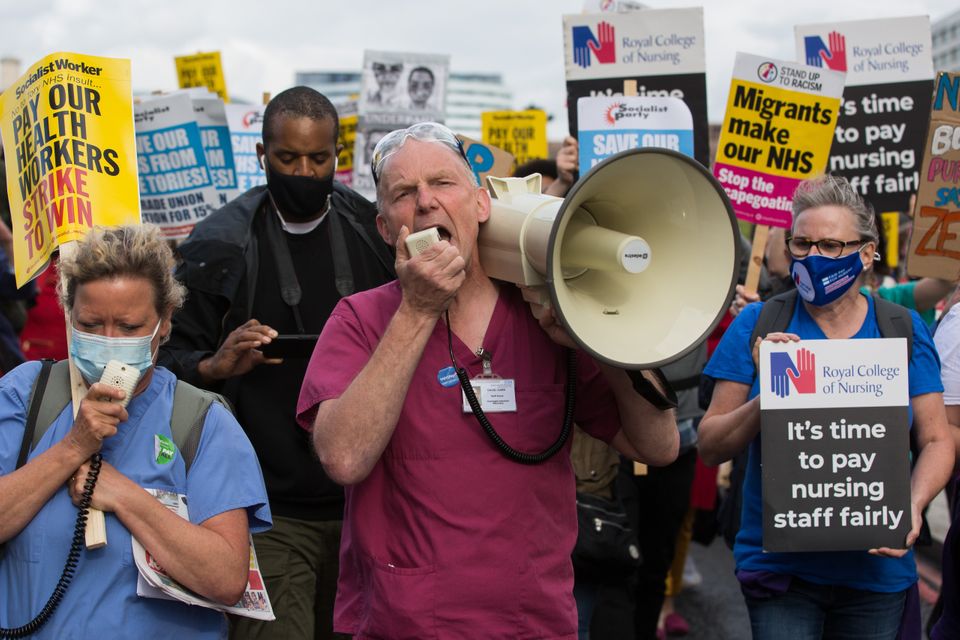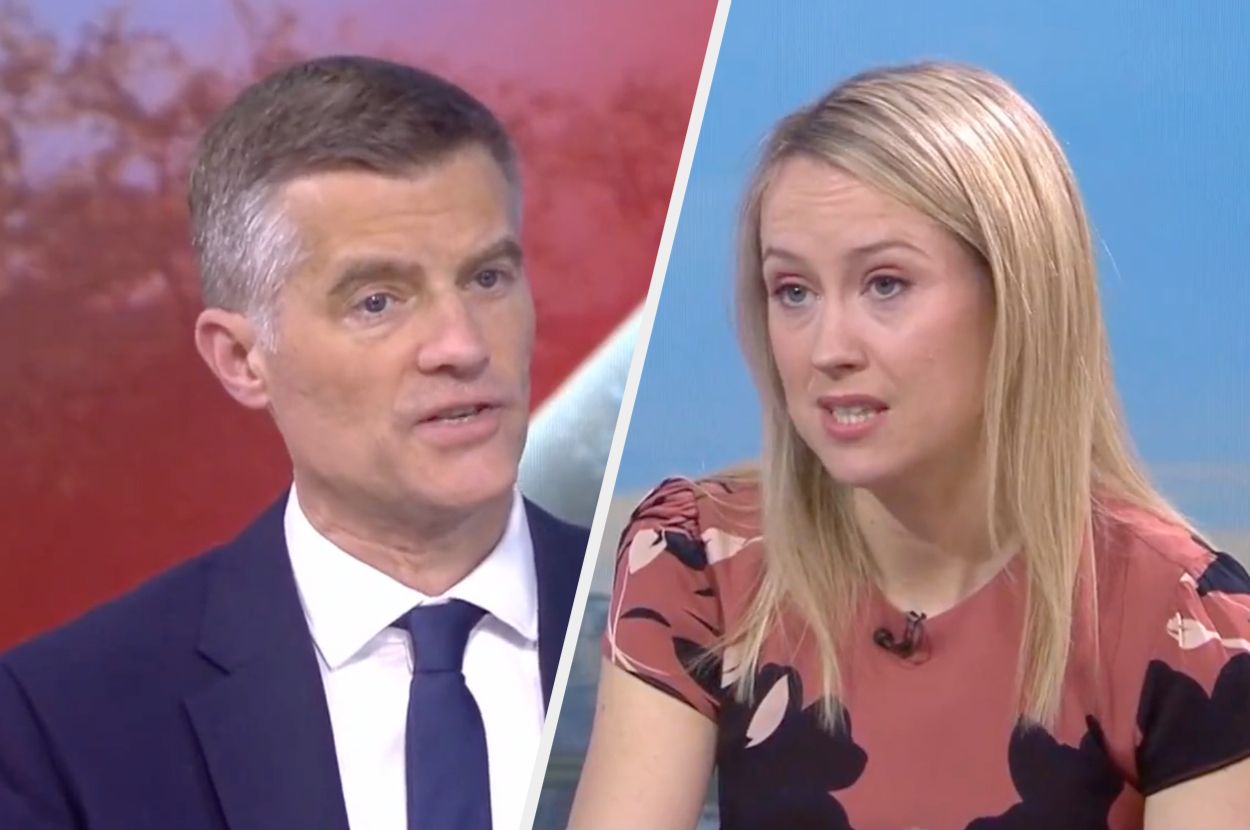
A cabinet minister has refused to state a single thing the government has done wrong in its negotiations with striking workers.
Mark Harper said it would not be helpful to “go back over the history” when grilled by Sky’s Sophy Ridge on the wave of strikes rocking Britain.
Advertisement
The presenter told him his response was “not very humble” when many of the workers are in low paid jobs.
It comes as tens of thousands of nurses are preparing to stage a 28-hour strike over pay from 8pm on Sunday.
Rail workers at 14 train operators are also set to strike on the day of the Eurovision Song Contest final on Saturday, May 13.
Advertisement
Ridge asked the senior Tory if the government took some responsibility for the strikes.
She told him: “Effectively the relationship between the government and the people who keep this country running has broken down.
“Some are the people who care for our sick in hospital, the people who teach our children, the people who drive the trains – do you not take some responsibility for that as well?”
Harper told the presenter that when he got the job under Rishi Sunak he tried to reset the relationship and meet with all the unions.
But Ridge hit back: “Well it hasn’t worked, has it?”
Harper insisted it had and hit out at the RMT rail union’s executive for “refusing” to put the latest offer to their members.
Ridge pressed him: “In this long running dispute – talking about the railways, the schools, the hospitals – is there something that you think in retrospect the government should have done differently?”
Advertisement
Harper said that looking at the “overall position” the government had made “fair and reasonable” pay offers that had been accepted by some of the biggest unions.
“So you can’t name a single thing the government’s done wrong?” Ridge hit back: “Don’t you think that’s part of the problem?
“It’s not very humble is it? When these are people who are on low paid jobs, many of them, working really hard and you can’t say a single thing that government’s done wrong?”
Harper hit back: “I don’t think it’s very helpful to just go back over the history and think what could we could have done differently.
“I’m focused on what we’re doing going forward. I think, by the way, on train drivers, they’re actually pretty well paid. The average salary of a train driver is £60,000…”
Advertisement
Ridge interrupted saying she was talking about lower paid workers including nurses and ambulance drivers.
Harper insisted that a “fair and reasonable” pay offer had been accepted by the largest health unions and the health secretary would receive their formal feedback on Tuesday.
The general secretary of the Royal College of Nursing said they are going back on strike because staffing shortages are putting patients’ lives at risk.
Pat Cullen said they had worked “tirelessly” with NHS England to make sure their strike is as safe as possible for patients.
Advertisement
She added: “There are national exemptions in place for a range of services, for emergency departments, for intensive care units, for neonatal units, paediatric intensive care units, those really acute urgent services.
“We have put national exemptions in place, we’ve worked tirelessly with NHS England.
“In fact, it was the Royal College of Nursing who contacted NHS England to ask for a process to be put in place so that we make sure that the strike was safe for our patients.”
The RCN will hold industrial action from 8pm on Sunday until 11.59pm on Monday night after voting to reject the latest government offer.
Health workers across the NHS have gone on strike several times in past months in disputes over pay and conditions.
Unions including Unison and the GMB have voted in favour of a government pay offer to end the strikes, while Unite and the RCN have voted against.
Advertisement

 Sky 501
Sky 501 